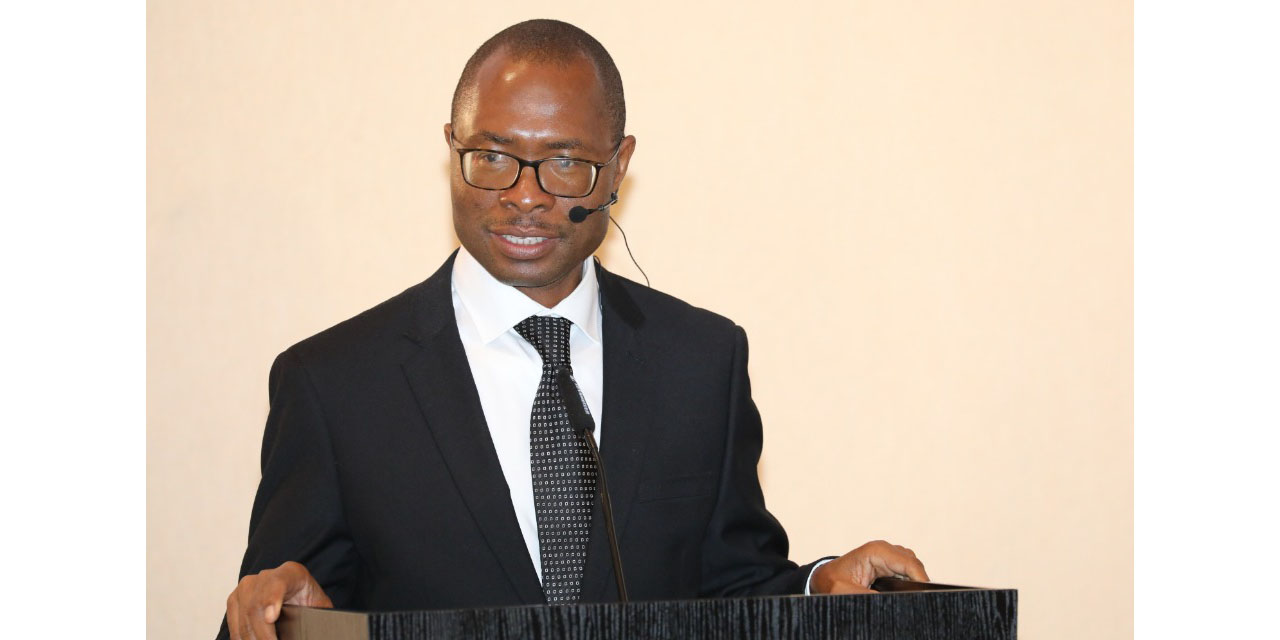Niël Terblanché
The Minister of Finance and Public Enterprises, Iipumbu Shiimi announced that Moody’s Investor Services has affirmed Namibia’s sovereign credit rating at B1 and upgraded the outlook from stable to positive.
Addressing the Namibian Parliament on Wednesday, Shiimi stressed the importance of the credit rating upgrade by one of the two rating agencies to which Namibia subscribes – Moody’s and Fitch Ratings.
He said the change reflects the country’s improved fiscal and economic metrics, promising growth prospects, and successful post-COVID-19 policy reforms.
Namibia initially engaged Moody’s in 2011, receiving an investment grade credit rating of Baa3 with a stable outlook. This rating reflected the country’s responsible financial management, low public debt, and investor-friendly policies.
According to Shiimi, the nation’s economic resilience was tested following the 2016/2017 recession and fluctuating commodity prices.
“These challenges resulted in increased government debt and a subsequent downgrade in August 2017 from Baa3 to Ba,” he said.
According to Shiimi, the situation continued to deteriorate until April 2022, when Moody’s further downgraded Namibia’s credit rating to B1 which revealed the country’s reduced shock absorption capacity and rising debt-to-GDP ratio exacerbated by the COVID-19 pandemic.
In response, the Namibian government implemented a comprehensive economic growth strategy and post-pandemic policy reforms aimed at reviving economic activity and boosting government revenue.
Shiimi said these efforts have yielded positive results, with real GDP growth averaging 4.4% from 2021 to 2023 and inflation rates stabilizing.
He noted the creation of the autonomous revenue agency NamRA and support from the Southern African Customs Union (SACU) revenue component have specifically strengthened fiscal and external buffers.
The minister said that fiscal deficits have narrowed to around 3%, and government debt levels have stabilized at approximately 60% of GDP, with expectations for further reduction.
“Public expenditure has also decelerated, aligning closer to revenue levels, reflecting disciplined fiscal management,” he said.
According to the minister, the government’s focused initiatives in ensuring fiscal sustainability and fostering new industries have shown remarkable outcomes, including significant developments in the oil, gas, and renewable energy sectors.
“These promising advancements are anticipated to have a transformative impact on the Namibian economy in the coming decade,” he added.
According to Shiimi, Moody’s recent assessment and review of Namibia’s sovereign credit rating reflect these positive developments.
He said the agency’s decision to upgrade Namibia’s outlook to positive is a testament to the country’s improved growth prospects, driven by higher commodity prices and substantial investments in both traditional mining and emerging hydrocarbon and renewable energy resources.
Shiimi urged continued efforts to build on this momentum and achieve even better economic outcomes in the future.




